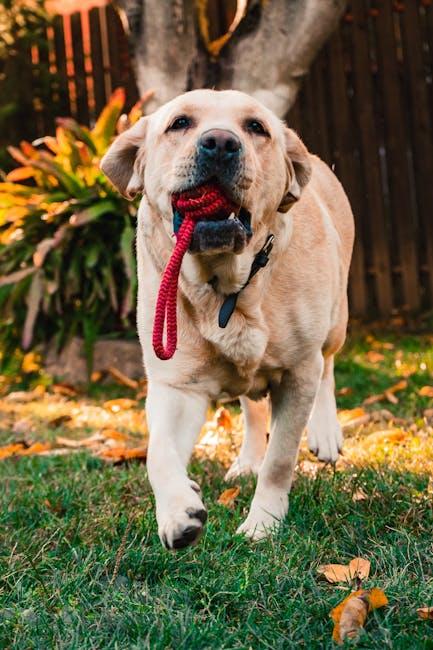Welcoming a new puppy into your home is an exciting and joyful experience, filled with playful moments and heartwarming companionship. However, as your furry friend explores the world around them, you might find their tiny teeth testing everything, including your fingers! While puppy biting is a natural part of their development, it’s important to guide them towards more appropriate behaviors. In this article, we’ll explore effective and gentle strategies to prevent biting in puppies, ensuring a harmonious and happy environment for both you and your new four-legged family member. Let’s embark on this journey of learning and growth together, fostering a bond built on trust and understanding.
Understanding the Reasons Behind Puppy Biting
Understanding why puppies bite is essential in addressing this behavior effectively. Puppies are naturally curious and explore the world through their mouths. They often bite as a way to learn about their environment, to play, or to relieve the discomfort of teething. Additionally, biting is a way for puppies to interact with their littermates, which is crucial for their social development. Recognizing these motivations helps in guiding them towards more appropriate behaviors.
- Exploration: Puppies use their mouths to discover new objects and textures.
- Play: Biting is a part of normal play behavior, helping them learn boundaries.
- Teething: Just like human infants, puppies experience discomfort during teething and seek relief.
- Socialization: Through gentle nipping, puppies learn social cues and bite inhibition from their littermates.
By understanding these natural instincts, owners can provide the appropriate guidance and tools, such as chew toys and structured playtime, to redirect biting into acceptable actions, ensuring a harmonious relationship with their furry friends.
Teaching Gentle Play and Bite Inhibition
Encouraging puppies to engage in gentle play is essential for their development and your sanity. Start by redirecting their energy toward appropriate toys whenever they get too mouthy. Offer a variety of textures and shapes to keep them intrigued and engaged. When a puppy bites too hard during play, let out a sharp “ouch” to signal that it’s painful, then immediately stop the play session. This mimics how their littermates would react, teaching them boundaries.
Tips for Encouraging Bite Inhibition:
- Consistency is Key: Everyone in the household should respond the same way to nipping to avoid confusing your puppy.
- Praise and Reward: Reinforce gentle play with treats and affection. Positive reinforcement strengthens good behavior.
- Scheduled Playtime: Regular play sessions can help manage your puppy’s energy and reduce the likelihood of nipping due to boredom.
- Calm Environment: Create a peaceful setting for your puppy to learn, minimizing overstimulation that might lead to biting.
By nurturing these habits early, you not only prevent unwanted biting but also build a strong foundation for a well-mannered companion.
Providing Appropriate Chew Toys and Alternatives
One of the most effective ways to redirect your puppy’s biting instincts is by offering them suitable chew toys and alternatives. Chew toys are designed to satisfy the natural urge to chew, providing both mental stimulation and physical activity. Opt for durable options that can withstand enthusiastic gnawing, like rubber bones or sturdy ropes. Rotate these toys regularly to keep your pup’s interest piqued and prevent boredom.
- Rubber toys – Ideal for teething puppies, these toys can be stuffed with treats for added engagement.
- Rope toys – Perfect for interactive play and tug-of-war, helping to strengthen your bond.
- Dental chews – Not only do they keep your puppy entertained, but they also promote oral health.
Additionally, explore natural alternatives such as frozen carrots or apple slices for a refreshing and healthy treat. These options are not only safe but also help soothe teething discomfort. Ensure that all toys and treats are appropriate for your puppy’s size and chewing strength to prevent any choking hazards.
Encouraging Positive Behavior with Consistent Training
Fostering a harmonious relationship with your new furry friend requires patience and dedication. To nurture good habits, it’s crucial to establish a training routine that is both consistent and gentle. Puppies, much like young children, learn best through repetition and positive reinforcement. Here are a few techniques to guide you:
- Reward Good Behavior: When your puppy plays without biting, offer praise or a small treat. This reinforces the idea that gentle play leads to positive outcomes.
- Redirect Attention: If your puppy starts to bite, immediately offer a chew toy. This not only distracts them but also helps them understand what is appropriate to chew.
- Use a Calm Voice: Raise your voice slightly to say “no” or “ouch” when bitten. This mimics the sounds their littermates would make and signals that biting is unacceptable.
Remember, patience and consistency are key. By establishing a routine and maintaining clear boundaries, you are helping your puppy grow into a well-mannered companion.

